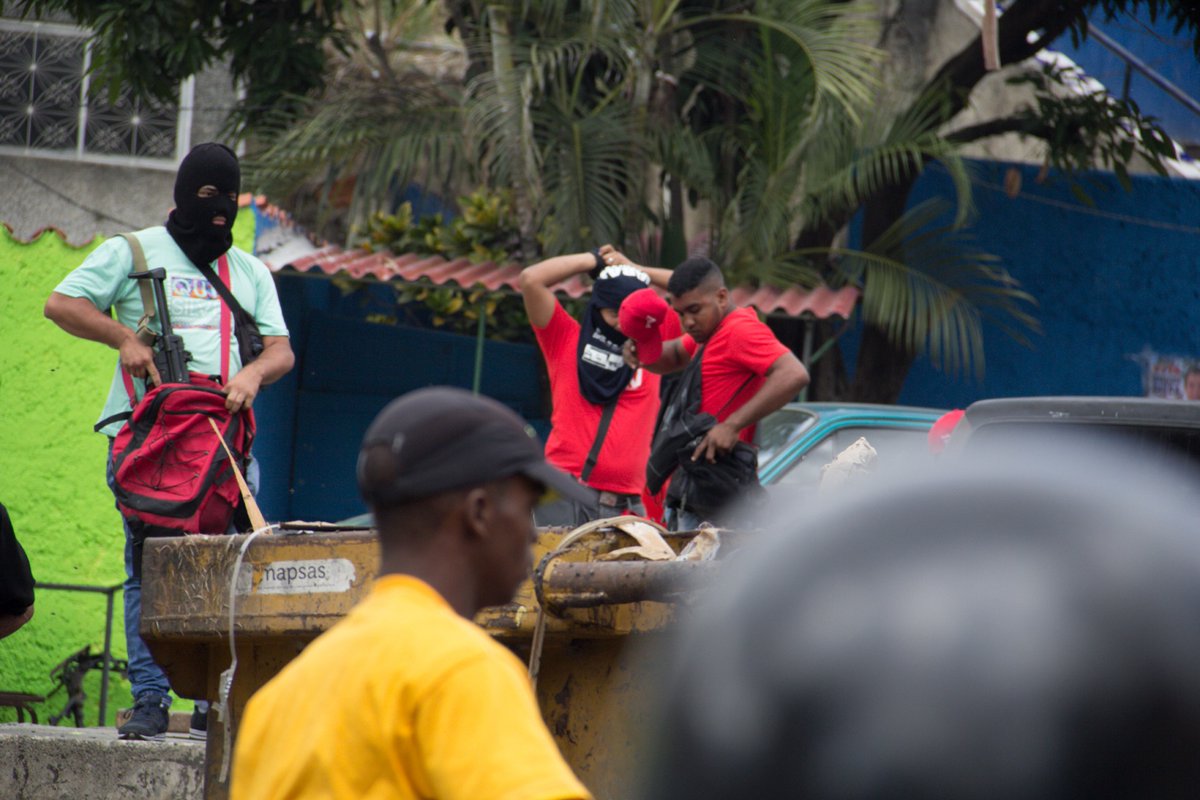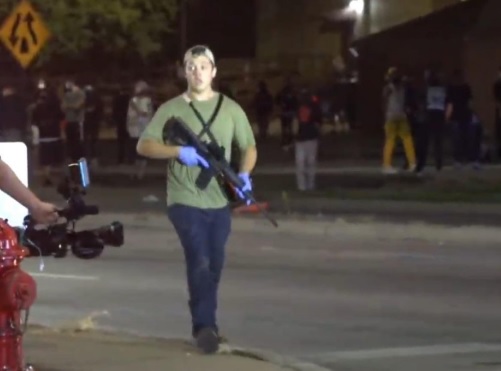I& #39;ve been researching protest violence in #Venezuela at @CrimSL_TO since 2015, focusing on the role that armed militias play in protest policing practices.
I never imaged back then that we& #39;d be seeing "colectivos armados" in the U.S. before I even defended my thesis.
I never imaged back then that we& #39;d be seeing "colectivos armados" in the U.S. before I even defended my thesis.
That& #39;s the term used in Venezuela for armed groups who intimidate & attack anti-government protesters, sometimes in collaboration with official authorities.
Here& #39;s a colectivo shooting at protesters in Caracas during the unrest of April 19 2019: https://twitter.com/NTN24ve/status/1123365427722293248">https://twitter.com/NTN24ve/s...
Here& #39;s a colectivo shooting at protesters in Caracas during the unrest of April 19 2019: https://twitter.com/NTN24ve/status/1123365427722293248">https://twitter.com/NTN24ve/s...
Colectivos have a complicated relationship with the gov& #39;t.
Some colectivo members are also police officers; some belong to organizations that are anti-opposition, but also anti-gov& #39;t; some are probably criminal gangs who repress in exchange for payment from the gov& #39;t.
Some colectivo members are also police officers; some belong to organizations that are anti-opposition, but also anti-gov& #39;t; some are probably criminal gangs who repress in exchange for payment from the gov& #39;t.
Regardless of their motivations, at the time and place of a protest, colectivos and state authorities have an overlapping goal: to repress.
The same can be said of the armed groups of civilians who have made headlines in the US, as in the Kyle Rittenhouse case, and police.
The same can be said of the armed groups of civilians who have made headlines in the US, as in the Kyle Rittenhouse case, and police.
The introduction of armed civilians in protest policing practices is, as you can imagine, bad.
Their activities diffuse & obscure state responsibility in violence against protesters. They allow the police to keep their hands relatively clean while they do their "dirty work".
Their activities diffuse & obscure state responsibility in violence against protesters. They allow the police to keep their hands relatively clean while they do their "dirty work".
In my ~5 years of researching colectivos in #Venezuela, I struggle to come up with a more blatant example of police condoning the lawlessness and chaos that are now synonymous with the country than the "we appreciate you guys" episode from Kenosha. https://www.youtube.com/watch?v=sXOEF1rQw7I">https://www.youtube.com/watch...
The ease and eagerness with which police in the US are welcoming the activities of these armed groups at protests is extremely disturbing.
Venezuelans know how this story ends.
Venezuelans know how this story ends.

 Read on Twitter
Read on Twitter



